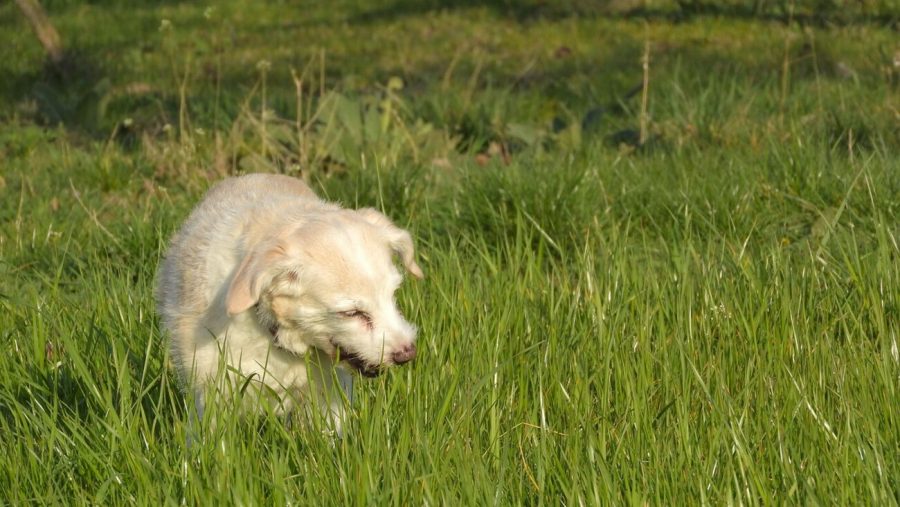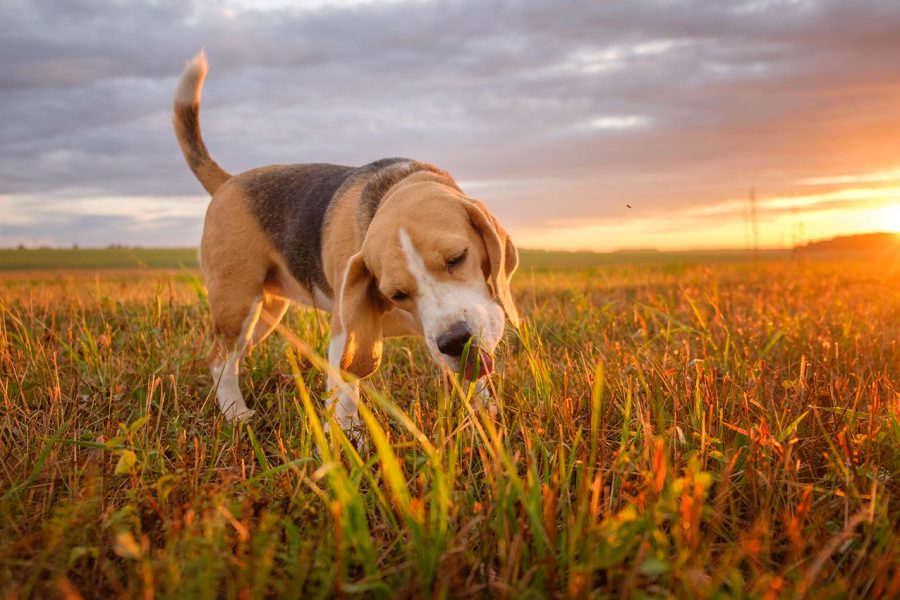This is a very common question that dog owners have for their vet.
In fact, it is not uncommon to observe a dog or a cat eating grass or other plants with no apparent nutritional value.
Why do dogs eat grass?
Dogs often eat grass on a daily or weekly basis and science has found some valid explanations for this behaviour.
Dogs that eat grass: a medical explanation
For example, dogs eat grass because they are unwell, and they need to vomit.
It can be possible that eating grass is actually stimulated by gastritis or an intestinal disorder, with the aim of facilitating vomiting. Contrary to the common perception, however, this is not the most common reason. Only a few dogs show signs of the disease associated with eating grass, and when they do they are more likely to vomit right after ingesting it.

Is it true that dogs eat grass because they have dietary deficiencies?
This is just an urban legend. According to recent studies there is no indication that dogs who are prone to dietary deficiency because they are fed mainly table scraps or eat a low-fibre diet, are more prone to eating grass than those that follow a commercial and nutritionally balanced diet.
Dogs that eat grass: the ethological explanation
So why do dogs eat grass and other plants?
Considering the low percentage of dogs that eat grass and plants because they are unhealthy, or have a food shortage, we can say that eating grass is mostly a normal behaviour in dogs, which probably reflects an innate predisposition inherited from wild canids.
In fact, in some studies conducted on wild canids, plant material was found in up to 74% of the faeces and stomach contents of wolves and cougars.
The biological function could derive from the role played by the ingestion of grass and plants in the elimination of intestinal parasites in wild canid ancestors. The plant material increases intestinal motility and, by enveloping the worms, promotes their expulsion.
Do some dogs eat grass more often than others?
This seems to be correct. Among dogs that eat plants and grass, younger dogs express this behaviour more frequently than older dogs.

Beware of the grass that dogs eat: a recommendation!
It is very important to keep dogs that have a habit of eating grass away from chemically treated meadows and toxic plants, including oleander, common ivy and jasmine.
Federica Pirrone, Mariangela Albertini, Patrizia Piotti researchers at UNIMI Veterinaria
